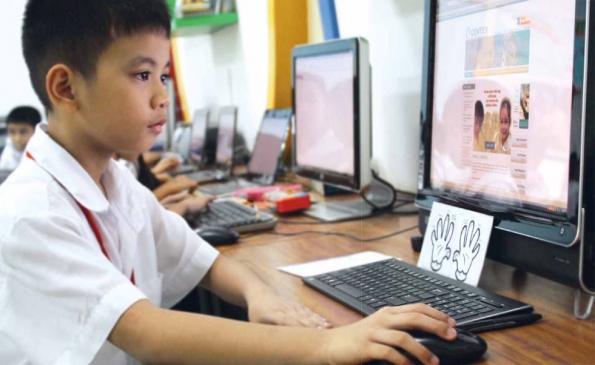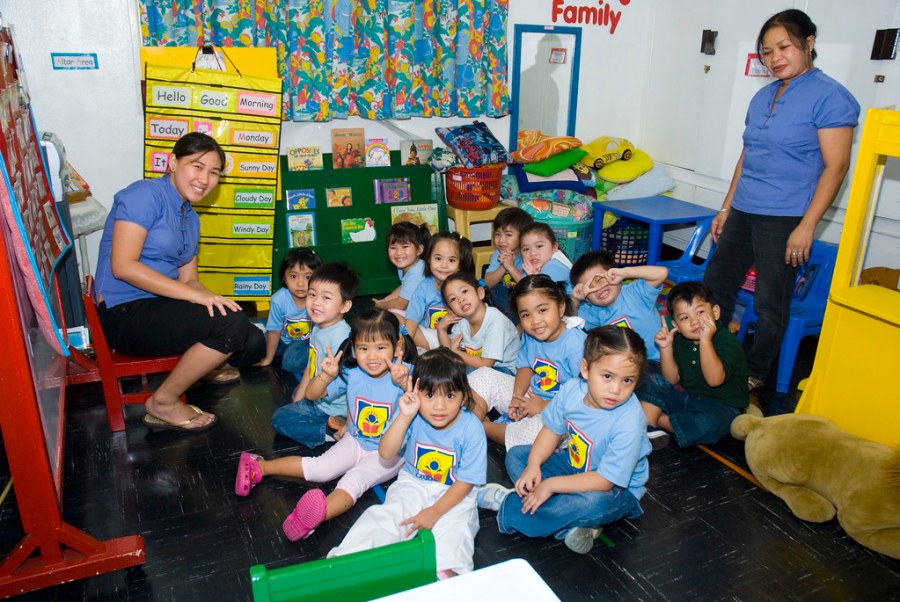
The Philippine Education System has undergone various modifications brought by settlers who colonized our country. Its long years of exposure and contact with the Spaniards, Americans, and the Japanese have created a spectrum of educational variations and lines of emphasis (de Guzman, 2003). Remarkably, the Philippines’ education system, both former and current, is significantly influenced by Dr. John Dewey’s philosophical perspective.
Dewey’s influence on Philippine education started to get sharply visible when it became independent (Papong, 2014). Student body organizations or councils were established not only at an institutional level but as a national union. Dewey emphasized the importance of students’ voices in the educative process. The presence and engagement of students in learning are deemed essential.

BE A TEFL/TESOL CERTIFIED TEACHER and start your teaching career now.
APPLY HERE
Presently, the K-12 Basic Education Program substantiates a reform in the country’s educational system. This program reflects Dewey’s pragmatist and cognitive constructivist ideas. Inquiry-based learning and spiral approach are incorporated into the present curriculum.
In a fast-pacing and ever-growing society, the educational system in the Philippines should be kept up-to-date. Students must not only be educated on a factual or conceptual level, but, the instruction must also tackle the social, political, and economic aspects of the individual’s life. In this way, education is more practical and functional (Damian, n.d.). Students will be able to associate learning to the real-world, thus, taking in charge and being responsible for their learning.

The following are some posits under the Deweyan Principle that are utilized in the present curriculum in the Philippines:
“The nature of the child is made the center of the educative process.”
I firmly believe, with great affirmation, that the main reason a school is established is because of the learner more than anything else. Rousseau stresses that the child should be respected, as he is with all his abilities and drawbacks, that in educating him, these should be given due consideration and that all children cannot, therefore, be treated alike. Setting aside the facilities, resources, strategies, and curriculum, the focus should be on the child. Therefore, the students’ interests and needs should be taken into consideration. The purpose of education will not be served if the learner does not involve themselves in the process.
“The theory of self-activity is made the center or basis of learning.”
Hands-on activities and experiences cultivate learning. It gives students first-hand experiences and lifelong learning. Rousseau says,” Teach by doing whenever you can, and only for fall back upon words when doing is out of the question. The child should take part in various activities and learn naturally. It will help him in the satisfaction of creative activity.” Heurism is demonstrated in today’s educational system, as the curriculum integrates inquiry-based learning and vocational training. Students are allowed to do experiments with apparatus that they made.

BE A TEFL/TESOL CERTIFIED TEACHER and start your teaching career now.
APPLY HERE
“Activity program is the core of the curriculum.”
Knowledge acquired through direct experience is rather permanent. Field trip, report, group activity, games, observation, experiments, cultural events, on-the-job training, programs, and projects all contribute to lifelong learning. This is highly encouraged right now in schools not as a supplement to the learning experience but as the main methods of teaching.
Both Damian and Papong made a direct but comprehensive synthesis of the impacts of Dewey’s Educational thoughts on the Philippines Educational System. Damian elaborates, in his paper the aims of Education under the Philippines New Society. He emphasizes how the Philippines and the Department of Education work in reorganizing the system to meet the growing needs of society. For him, to create a better nation, it should prepare the young people with the best education even in the complexity of time, economic aspects, advanced technology, environment, social forms, and political change. Papong describes how Dewey’s principles influence the Philippine Educational system, both past and present. He hopes that with the acquisition of the K-12 Program and Deweyan principle, a better and more progressive future for Philippine Education will be attained.
According to the provisions of the Constitution of the Philippines (1935), all schools shall “aim to develop moral character, personal discipline, civic conscience, vocational efficiency and to teach the duties of citizenship” These can all be attained through practicing pragmatism, experimentalism, and cognitive constructivist ideas.
References:
Papong. (2014). Bulgarian Journal of Science and Education Policy (BJSEP). The Influence of John Dewey’s Educational Thought on Philippine Education.
Damian (n.d.). The importance of Dr. John Dewey’s Educational Philosophy Applied in Philippine Setting.
Darji. (2012). Educational Philosophy of Jean Jacques Rousseau. Retrieved from http://cdwaymade.blogspot.tw/2012/09/educational-philosophy-of-jean-jacques.html
Monteiro. (n.d.). Rousseau’s Concept of Education. Retrieved from http://snphilosophers2005.tripod.com/ternan.pdf
De Guzman. (2003). Asia Pacific Education Review. The Dynamics of Educational Reforms in the Philippine Basic and Higher Education Sectors. Retrieved from http://files.eric.ed.gov/fulltext/EJ776349.pdf
Photo Source: http://ayala.weboui.com
“ILO photo e6432” by ILO PHOTOS NEWS is licensed under CC BY-NC-ND 2.0

thank u its a big help for me
LikeLike
Thank youu for being you
LikeLike